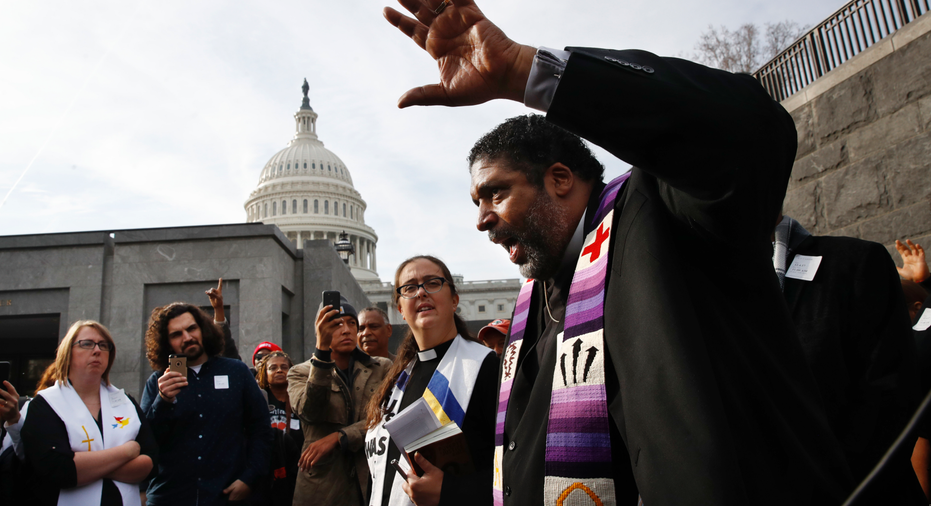Lawmakers work to reconcile dueling House, Senate tax bills

WASHINGTON – Significant differences separate the massive tax packages passed by the House and Senate on estate taxes, health care and a prized deduction for home mortgage interest, though Republican leaders are confident none is insurmountable.
Republicans are trying to pass the biggest rewrite of the tax system in more than 30 years.
"We're looking forward to getting a final bill to the president's desk, soon," Senate Majority Leader Mitch McConnell, R-Ky., said Monday.
Both versions would cut taxes by about $1.5 trillion over the next decade while adding billions to the deficit. But they take different approaches.
"I don't see anything here that is a deal-killer," said Jon Traub, a former staff director for House Ways and Means Republicans who is now at Deloitte Tax. "Having come this far, I don't know why they wouldn't be able to finish."
The Senate bill passed by a thin 51-49 margin, so any changes in that measure will have to be negotiated with the senators who care about that issue, said Marc Gerson, a former tax counsel for Ways and Means and now chair of the law firm Miller & Chevalier.
"Overall, I think that the Senate bill is kind of the base text," Gerson said.
The differences and how each issue is likely to play out:
___
PERSONAL INCOME TAX RATES
The House bill condenses current seven brackets to four: 12 percent, 25 percent, 35 percent and 39.6 percent. The Senate measure retains seven brackets but changes them and reduces the top bracket from 39.6 percent to 38.5 percent.
The Senate bill ends the reductions in 2026; they're permanent in the House version.
It has long been a Republican goal to reduce the number of tax brackets, so House Republicans will have a strong argument on this issue.
The Senate bill has been criticized because the tax cuts for individuals are temporary while the tax cuts for corporations are permanent. Senators, however, had to make some of the tax cuts temporary to comply with Senate rules that prevented Democrats from blocking the bill.
On Sunday, Trump's budget director, Mick Mulvaney, said he was comfortable with the Senate plan because he doubted that future congresses would let the tax cuts expire.
___
HOME MORTGAGE INTEREST DEDUCTION
The House version limits the deduction to interest paid on the first $500,000 of a loan for new home purchases. The Senate retains the current $1 million ceiling.
The housing industry is lobbying hard for the Senate version.
___
ALTERNATIVE MINIMUM TAX
The House bill repeals both the individual and the corporate AMT, which is designed to ensure that higher-earning people pay at least some tax. The Senate bill scales back the individual AMT and keeps the corporate AMT.
House Majority Leader Kevin McCarthy, R-Calif., blasted the Senate plan on Monday, saying it would kill research and development because tax credits wouldn't be worth as much. Expect a strong push to adopt the House version or to make significant changes to the Senate bill.
"They will have to do something different than what the Senate did," said Rohit Kumar, a former aide to Senate Majority Leader Mitch McConnell, R-Ky. Kumar is now at accounting firm PwC.
___
INHERITANCE TAX
Under current law, when someone dies the estate owes taxes on the value of assets transferred to heirs above $5.5 million for individuals, $11 million for couples. The House bill initially doubles those limits and then repeals the entire tax after 2023. The Senate bill doubles the limits but does not repeal the tax.
This is an ideological battle. Very few estates pay the tax, but repealing it has long been a Republican goal. They call it the "death tax."
"That's one where it seems likely that the Senate prevails," Kumar said. "I don't say that lightly because (repealing it is) something Republicans have wanted to do."
___
PASS-THROUGH BUSINESSES
Millions of U.S. businesses "pass through" their income to individuals, who then pay personal income taxes on those earnings. The House bill taxes many of them at 25 percent, plus creates a 9 percent rate for the first $75,000 in earnings for some smaller pass-throughs.
The Senate bill lets people deduct 23 percent of their business earnings and then pay at their personal income tax rate on the remainder.
The House plan is more generous but the Senate plan was the result of delicate, last-minute negotiations that secured some of the final votes to pass the bill.
"The pass-through stuff was well-litigated in the Senate," Kumar said. "If they do something different than what was in the Senate bill, they will have to check with the people who care."
___
HEALTH LAW MANDATE
The Senate bill repeals the mandate that requires the vast majority of Americans to buy health insurance; the House version does not.
The Senate is likely to prevail because many House Republicans support repealing the mandate. Also, repealing the mandate would raise $318 billion over the next decade, according to congressional estimates, because fewer people are expected to apply for tax credits to help pay for health insurance.
That's money that can be used to pay for other tax cuts.
___
Follow Stephen Ohlemacher on Twitter at http://twitter.com/stephenatap



















